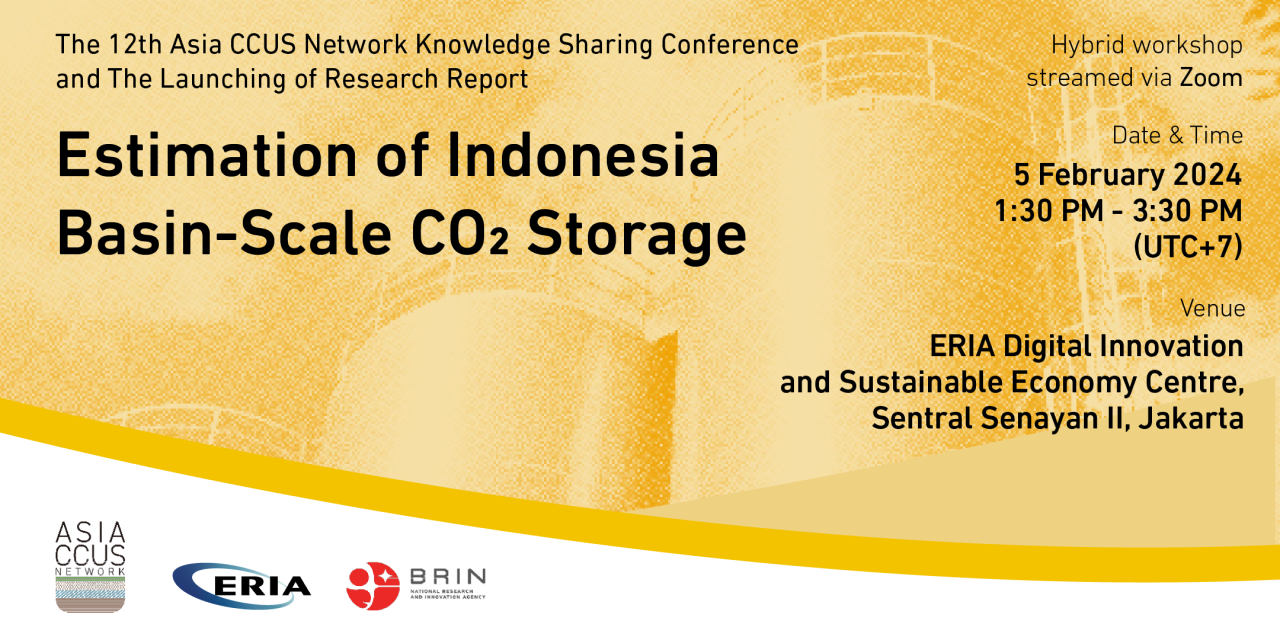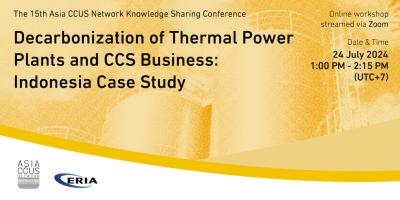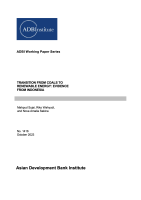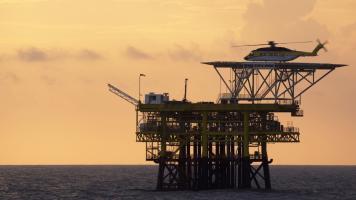Estimation of Indonesia Basin-Scale CO₂ Storage

Event Type:
Date:
Time:
Venue:
Organizer:
This webinar will discuss findings from a study that looked into the country's potential for basin-scale carbon dioxide storage.
Carbon capture, use, and storage (CCUS) will be crucial in achieving net-zero emissions as it provides the means to decarbonize hard-to-abate sectors.
Indonesia could play a significant role in CCUS deployment in Southeast Asia due to the availability of vast sedimentary basins suitable for carbon dioxide (CO2) storage, such as oil and gas reservoirs and deep saline aquifers.
There are a total of 128 sedimentary basins across the Indonesian archipelago. Twenty have proven oil and gas reservoirs that have demonstrated the ability to store significant quantities of buoyant fluids such as oil, gas, and CO2. The remaining basins consist of 27 discovery basins not yet in production, 12 prospective basins with available seismic and well data, and 69 unexplored basins.
This webinar will examine Indonesia's capacity to store CO2 at the basin level. It will also feature findings from a new study that looked into the country's potential for basin-scale CO2 storage.
The study was conducted by a team of experts from the Center for Technology Service-National Research and Innovation Agency (Pusyantek-BRIN), the Testing Center for Oil and Gas LEMIGAS-Directorate General of Oil and Gas, and the Center for Geological Survey-Geological Agency, Ministry of Energy and Mineral Resources of Indonesia, with support from the Economic Research Institute for ASEAN and East Asia (ERIA) and the Asia CCUS Network (ACN).
The report was completed in December 2023 and will be launched during the webinar.


